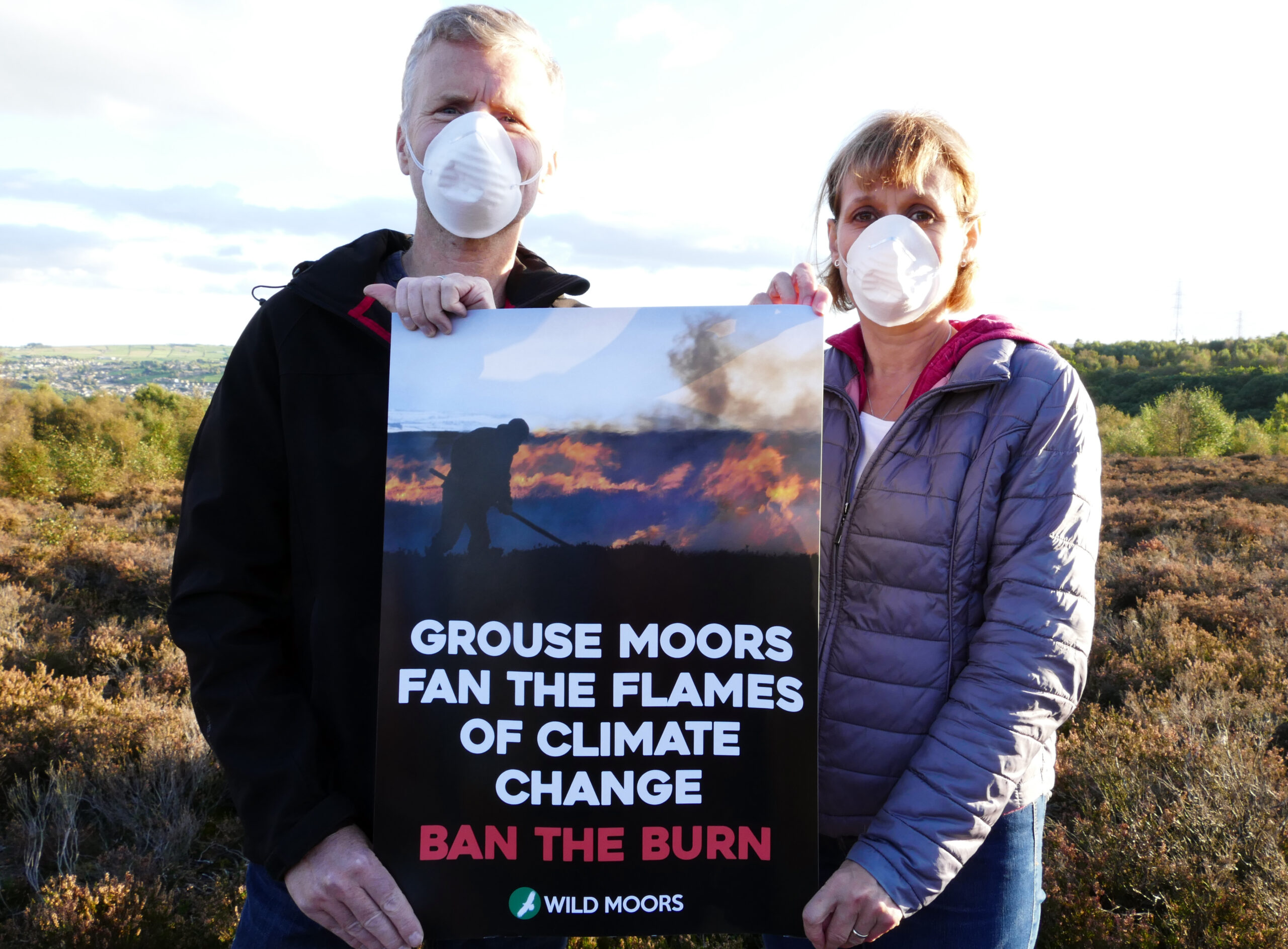Councils are being urged to join the battle to save northern England’s peat moors from being damaged for grouse shooting.
Coinciding with the controversial grouse moor burning season opening on Friday, 1 October, Wild Moors has written to Council Leaders seeking support for a complete ban on the environmentally-damaging practice.
Grouse shoot operators set fire to heather to cultivate younger, more nutritious shoots for game birds to eat, but the intensive practice contributes to climate change by damaging the carbon-rich peatlands which make up the moors.
Luke Steele, Executive Director of Wild Moors, said:
“It’s past time to put an end to the burning of peatlands for grouse shooting — a practice which degrades fragile ecosystems, releases climate-altering gasses into the atmosphere and worsens flooding in communities downstream from grouse moors.
“With burning continuing on grouse moors in the region, we are calling for Council Leaders to take a stand in favour of a burning ban to help save the northern England’s peatlands from further damage.”
The nation’s peatlands store more carbon than all the forests in the UK, France and Germany combined. But grouse moor burning has become the biggest threat to some of the country’s most important conservation sites. Subsequently, only 4% of England’s upland peat is in favourable condition which is converting these important habitats from carbon stores into carbon emitters.
In recognition of the environmental damage caused by grouse moor burning the government introduced a partial ban on the practice in May. However, Wild Moors is warning that a considerable number of grouse moors are exempt from the new rules because they are located on degraded shallow peat, not blanket bog, despite urgently needing to be restored to a healthier, deeper state.
The Committee on Climate Change, which advises the government on environmental action, has recommended that grouse moor burning is completely banned to protect peatlands from further damage.
Luke Steele adds:
“Given the world is fast moving in a direction where restoring land for nature, carbon capture and people is at the forefront of solving climate change and biodiversity loss, a considerable number of northern England’s moors are at risk of being left behind if burning is allowed to continue on them.
“With grouse moor burning damaging some of the region’s biggest natural carbon stores, it’s never been so important for Council Leaders to back an outright ban on this outdated and environmentally-destructive practice.”
– ENDS –
Notes for editors:
- Wild Moors seeks to unlock an area of uplands the size of Greater London for regeneration by 2030. By working with communities, companies and government, Wild Moors acts as a catalyst for effective and lasting change.
- Research by the University of Leeds and others has found that grouse moor burning degrades peatland habitat, reduces biodiversity and increases flood risk.
- Broadcast quality footage and print quality photographs of burning on grouse moors is available to download here, with full permission granted for re-publication.
